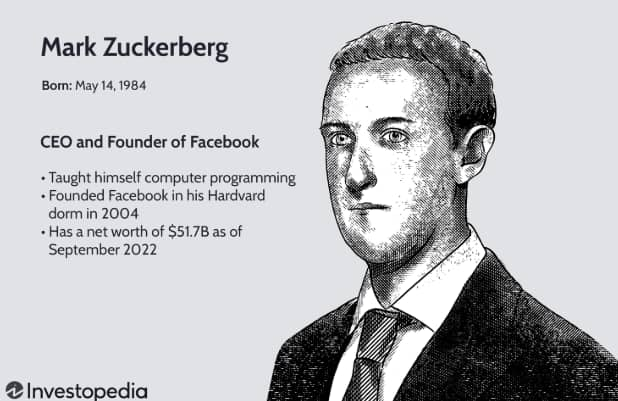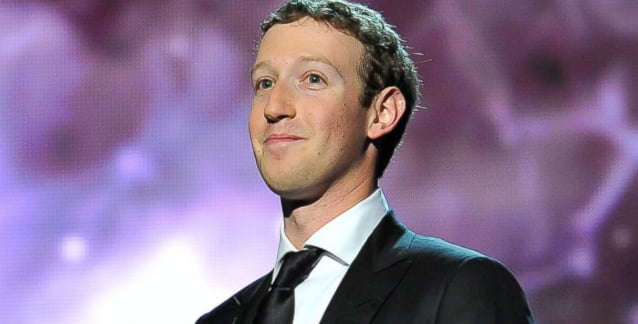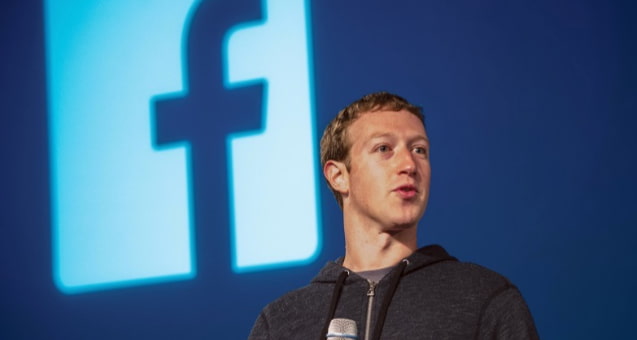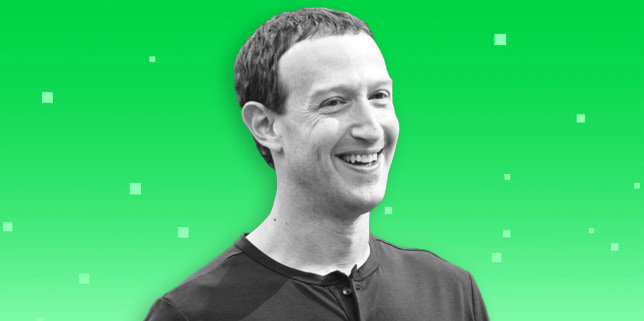Contents
What’s one of the first things you check on your phone when you wake up in the morning? Or when you’re wondering about an old friend or want to announce an event, where do you first think of? If Facebook, Instagram, or WhatsApp are among your answers, then welcome the name that has touched a corner of your life: Mark Zuckerberg. Who is this man who, with his gray T-shirt, hoodie, and slippers, rewrote the rules of the tech world, connecting billions of people while also becoming the center of countless debates?
His story was a bit different from the classic “garage success” story. Founded while studying at Harvard University, Facebook initially aimed solely to connect his classmates. But this simple idea quickly became a global phenomenon. What began in his college dorm room quickly evolved into a social media giant reaching billions of users worldwide.

Mark Zuckerberg’s life is not only fraught with technology, but also with controversies, scandals, and ethical questions. Issues such as user data privacy, the social impact of algorithms, and election interference have frequently been on the agenda during Facebook’s growth. Despite this, Zuckerberg has managed to transform his company from a mere social media platform to a pioneer in fields like virtual reality and artificial intelligence.
Let’s take a closer look at this hero, whose incredible journey, reminiscent of Elon Musk, began in his Harvard dorm room and extended into virtual universes, and all its ups and downs.
How It All Began: The Child Prodigy in the Harvard
Mark Zuckerberg’s story is a dorm room version of the typical “startup in a garage” cliché. He was born in New York in 1984 to an educated family. His father was a dentist and his mother was a psychiatrist. He attracted attention from an early age with his interest in computers and programming. In fact, he was only 12 when he created a simple instant messaging program called “ZuckNet” for his father’s office. This was perhaps the first seed of his future ambition to connect millions of people. Even in high school, he was talented enough to attract the attention of major tech companies, but he chose Harvard for his university education.
While studying psychology and computer science at Harvard University, he was obsessed with digitizing campus social life. One of his first attempts, “Coursematch,” helped students find others taking the same classes. But the real bombshell came with his project called “Facemash.” This site featured Harvard students’ photos side by side and had them vote on which one was “more attractive.” The site became so popular that it crashed Harvard’s servers within hours, and Mark Zuckerberg was referred to a disciplinary board for unauthorized data use. While ethically questionable, this incident clearly demonstrated people’s penchant for viewing and rating other people’s profiles.

Learning from the Facemash scandal, our hero began working on a much larger and more comprehensive project. His goal was to create an online platform where people could connect, share photos, and socialize. On February 4, 2004, he launched “Thefacebook.com” from his dorm room. Initially available only to Harvard students, the site quickly spread. Within a month, more than half of Harvard students had become members. This success astonished everyone who saw the site’s potential.
Silicon Valley and Social Network!
Facebook’s rapid growth also caught the attention of investors. Zuckerberg made the difficult decision to drop out of school and move to Palo Alto, the heart of Silicon Valley, with a few friends. This was a turning point for him. This was no longer a dorm room project, but a real company. An initial major investment of $500,000 from PayPal co-founder Peter Thiel fueled Facebook’s meteoric rise. From that moment on, Facebook expanded to other universities, then high schools, and finally the entire world, becoming an unstoppable force.
This founding story has also been the subject of movies. While “The Social Network” depicts this process filled with intrigue, friendships, and betrayals, it also reveals a fundamental truth: A simple idea by a few college students, when implemented in the right way and at the right time, could change the world. In that dorm room, Mark Zuckerberg started not just a website, but a revolution that would rewrite the social dynamics of the 21st century.
Facebook Meta: Mark Zuckerberg’s Empire
Facebook was no longer just a social network; it had transformed into a technology giant. Mark Zuckerberg not only expanded the platform he created, but also pursued a highly aggressive strategy of acquiring potential competitors or companies that complemented his vision. The first of these acquisitions was Instagram, purchased for $1 billion in 2012. While many considered this figure astronomical at the time, time has proven Zuckerberg right. Instagram became one of Facebook’s most profitable investments, helping it reach a younger audience and becoming the center of a new social media culture based on visual sharing.
His second major move in expanding his empire came in 2014. He acquired WhatsApp, the world’s most popular instant messaging app, for a staggering $19 billion. This acquisition cemented Facebook’s dominance in mobile communications. Now, billions of people were communicating, socializing, and sharing their lives through his three distinct platforms: Facebook, Instagram, and WhatsApp. This trio took the company’s power in data collection and digital advertising to unprecedented levels.

But Zuckerberg’s vision wasn’t limited to managing existing social media platforms. He was always thinking about the next big thing: the future of technology. He had a keen interest in virtual reality (VR) and augmented reality (AR). The most concrete evidence of this interest was his $2 billion acquisition of Oculus VR, a company that produces virtual reality headsets, in 2014. While this move seemed pointless to many at the time, it actually hinted at a future he would call the “Metaverse.”
Meta Platforms and Data Breach Risks
Over the years, Facebook has been frequently associated with data scandals, privacy violations, and disinformation. The company’s image had been severely damaged. It was at this point that Zuckerberg made a radical decision, shifting the company’s future in a completely new direction. In 2021, he announced the company’s umbrella name was being changed to “Meta Platforms.” This wasn’t just a name change, but also a declaration of the company’s mission: The priority now was to build the “Metaverse,” a virtual universe where people would work, play, socialize, and shop, rather than social media.
This transformation is considered its riskiest and most expensive gamble. Meta spends billions of dollars annually building this virtual universe. While the concrete results are yet to be fully realized, this vision clearly demonstrates its desire to shape not only the digital world of today but also the future. Mark Zuckerberg, who transformed Facebook from a dorm room project into an empire by swallowing up giants like WhatsApp and Instagram, is now trying to move this entire empire into a new universe called the Metaverse.

Mark Zuckerberg: Scandals and Lawsuits
Mark Zuckerberg and the empire he created, while seemingly brilliant and successful, also possess a dark and controversial side. As the company grew, so too did the ethical and legal issues. The most significant of these controversies, and the one that most deeply damaged the company’s reputation, was undoubtedly the Cambridge Analytica scandal that broke in 2018. It was revealed that the personal data of millions of Facebook users had been collected without their knowledge by the political consulting firm Cambridge Analytica and used to influence elections. This scandal brought to the forefront the question, “Is our data truly secure?”
Following this incident, Mark Zuckerberg was forced to testify before the US Congress and the European Parliament. Images of Mark removing his famous hoodie and putting on a suit before senators are etched in our memories. He repeatedly apologized and promised to do better. However, this scandal seriously questioned the very foundation of Facebook’s business model: its practice of selling user data to advertisers. People have painfully realized that the price of their “free” service is actually their privacy.
The criticisms weren’t limited to data privacy. Allegations that Facebook’s platform was used as a tool for the spread of fake news and disinformation originating from Russia, particularly during the 2016 US elections, generated significant public outcry. There has been significant criticism that the platform’s algorithms prioritize content that polarizes and incites anger, undermining social peace. Mark has been accused of failing to take sufficiently swift and effective action on this issue.

Criticism of Monopoly and Personal Rights
The company’s rise to monopolistic power is another major point of contention. Numerous antitrust lawsuits have been filed against it, alleging that it eliminated competition by acquiring potential rivals like Instagram and WhatsApp. Critics argue that Mark Zuckerberg acts like a dictator in the social media market, stifling innovation. These lawsuits are seen as one of the biggest threats to the company’s future, and there’s even talk of a spin-off.
Finally, his personal management style and absolute power within the company are frequently criticized. Thanks to the company’s share structure, he has the sole power to veto board decisions, making him a virtually unquestionable leader. There are also a number of those who argue that he should be held personally accountable for problems and poor decisions within the company. In short, what began as a brilliant genius has gradually become a complex one, fraught with the responsibilities and scandals that come with power.
In conclusion, after all this, who is Mark Zuckerberg? Is he a tech visionary who rose from a dorm room to become one of the richest and most powerful people in the world? Or is he an ambitious businessman who built an empire on billions of people’s data and struggles to juggle the responsibilities that come with his power? Probably both.
